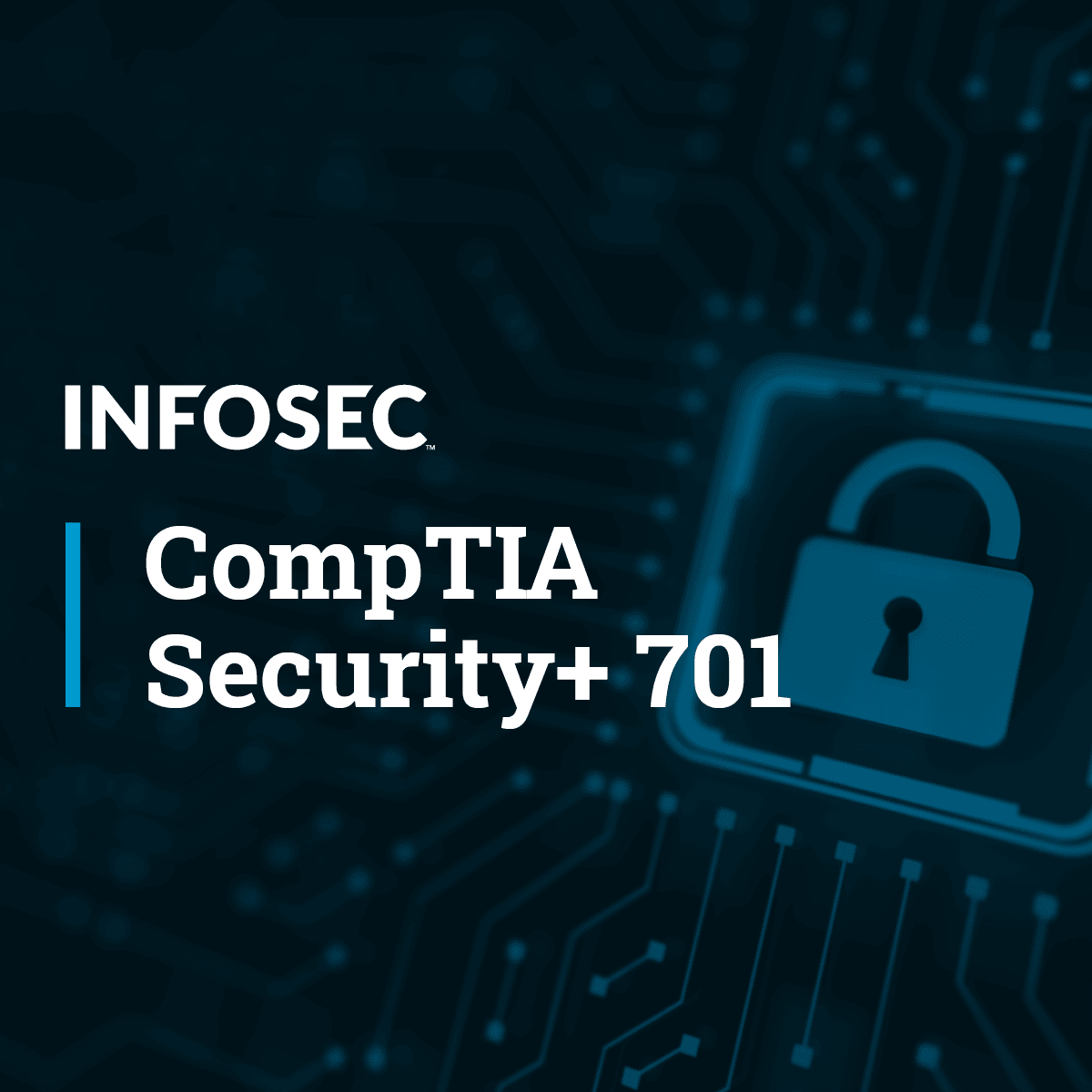Information Security Specialist
A Comprehensive Guide to a Career as an Information Security Specialist
An Information Security Specialist is at the forefront of protecting an organization's valuable digital assets. At a high level, this role involves designing, implementing, and managing security measures to safeguard computer systems, networks, and sensitive data from unauthorized access, use, disclosure, alteration, or destruction. Professionals in this field are crucial in a world increasingly reliant on technology, where cyber threats are constantly evolving and becoming more sophisticated.
Working as an Information Security Specialist can be highly engaging due to the dynamic nature of cybersecurity. It involves a constant learning process to stay ahead of emerging threats and technologies. The role often requires a detective-like mindset to investigate security incidents and identify vulnerabilities, making it intellectually stimulating. Furthermore, knowing that your work directly contributes to the safety and integrity of an organization's information and reputation can be immensely rewarding.
Introduction to Information Security Specialist
This article delves into the multifaceted career of an Information Security Specialist. We will explore the core responsibilities, the skills and education required, career progression, and the evolving landscape of this critical profession. Our aim is to provide a comprehensive overview for those considering this path, from students exploring options to professionals contemplating a career pivot.
Definition and Core Objectives
An Information Security Specialist, often referred to as a Cybersecurity Specialist, is a professional dedicated to protecting an organization's information systems and data. Their primary objective is to ensure the confidentiality, integrity, and availability (often referred to as the CIA triad) of data and IT infrastructure. This involves a wide array of tasks, from developing security policies and procedures to actively monitoring for and responding to security breaches. The core mission is to create and maintain a secure digital environment, minimizing risks and mitigating the impact of any security incidents that may occur.
These specialists work to identify vulnerabilities in systems and networks, assess potential risks, and implement safeguards. They are crucial in preventing data theft, unauthorized access, and disruption of services. This role is not just about technology; it also involves understanding business processes and aligning security measures with organizational goals. They act as guardians of digital assets, ensuring that the organization can operate securely and efficiently.
The scope of their work often extends to educating employees about security best practices, as human error can be a significant vulnerability. By fostering a security-aware culture, Information Security Specialists help to create a more resilient defense against cyber threats. Their efforts are vital for maintaining customer trust, complying with regulations, and protecting the overall reputation of the organization.
Historical Evolution of the Role
The role of the Information Security Specialist has evolved significantly alongside the advancement of computer technology and the internet. In the early days of computing, security was often an afterthought, primarily focused on physical access control to mainframes. As computers became more networked and businesses started to rely on them for critical operations, the need for dedicated information security professionals began to emerge.
The proliferation of personal computers and the rise of the internet in the late 20th century dramatically increased the attack surface and the types of threats organizations faced. This era saw the emergence of viruses, worms, and other malware, prompting the development of antivirus software and firewalls. The role started to become more defined, focusing on protecting network perimeters and individual workstations.
In the 21st century, with the explosion of e-commerce, cloud computing, mobile devices, and the Internet of Things (IoT), information security has become vastly more complex. Threats have grown in sophistication, ranging from targeted phishing attacks and ransomware to advanced persistent threats (APTs) orchestrated by organized cybercriminal groups and nation-states. Consequently, the Information Security Specialist's role has become more strategic, requiring a deep understanding of a wide range of technologies, threat intelligence, risk management, and regulatory landscapes. Today, they are indispensable members of almost every organization.
Key Industries Employing Information Security Specialists
Information Security Specialists are in high demand across virtually all industries, as nearly every organization, regardless of size or sector, handles sensitive data and relies on computer systems. However, certain sectors have a particularly critical need for robust information security. The finance and banking industry, for instance, is a prime target for cybercriminals due to the vast amounts of monetary assets and sensitive customer data it handles. Robust security is paramount to maintain trust and comply with stringent financial regulations.
Healthcare is another sector with a significant need for Information Security Specialists. Patient health information (PHI) is highly sensitive and subject to strict privacy regulations like HIPAA (Health Insurance Portability and Accountability Act) in the United States. Protecting this data from breaches is crucial for patient safety and regulatory compliance. Government agencies, at local, state, and federal levels, also employ a large number of these professionals to protect national security interests, public infrastructure, and citizen data.
The technology sector itself, including software companies, cloud service providers, and e-commerce businesses, heavily relies on Information Security Specialists to protect their intellectual property and customer data. Other key industries include retail, manufacturing, education, and energy, all of which face unique cybersecurity challenges related to their specific operations and the data they manage. The increasing interconnectedness of systems means that the expertise of Information Security Specialists is vital across the economic landscape.
Roles and Responsibilities
The day-to-day work of an Information Security Specialist is diverse and dynamic, shaped by the evolving threat landscape and the specific needs of their organization. Understanding the breadth of these responsibilities is key for anyone considering this career path.
Primary Duties: Vulnerability Assessments, Incident Response
A core function of an Information Security Specialist is to proactively identify and mitigate weaknesses in an organization's IT infrastructure. This involves conducting regular vulnerability assessments and penetration testing to uncover potential security flaws in networks, systems, and applications. They analyze assessment results to prioritize risks and recommend remediation measures. This might involve configuring security tools, applying patches, or re-designing security architectures.
When security incidents do occur, such as a malware infection, data breach, or denial-of-service attack, Information Security Specialists are on the front lines of response. They work to detect, contain, eradicate, and recover from these incidents. This includes investigating the cause and extent of the breach, preserving evidence for forensic analysis, and restoring affected systems. Documenting incidents and the response process is also a critical part of this duty, helping to refine security measures and prevent future occurrences.
Beyond these reactive and proactive technical tasks, specialists also monitor security alerts and logs, manage security tools like firewalls and intrusion detection/prevention systems (IDS/IPS), and stay updated on the latest cyber threats and countermeasures. They often develop and maintain security documentation, including policies, standards, and procedures.
To gain a deeper understanding of how to handle security incidents and protect data, individuals can explore online courses. These courses often provide practical exercises and insights into real-world scenarios.
Collaboration with IT/Engineering Teams
Information Security Specialists rarely work in isolation. Effective security requires close collaboration with various IT and engineering teams within an organization. For instance, they work with network administrators to implement and configure network security devices like firewalls and VPNs. They also partner with system administrators to ensure servers and endpoints are properly hardened and patched against vulnerabilities.
Collaboration with software development teams is increasingly important, especially with the rise of DevSecOps practices. Specialists may provide security requirements for new applications, conduct security code reviews, and help integrate security testing into the software development lifecycle (SDLC). This ensures that security is built into applications from the ground up, rather than being bolted on as an afterthought.
Furthermore, Information Security Specialists often need to communicate technical security issues to non-technical stakeholders, including management and other business units. This requires strong communication and interpersonal skills to explain risks and justify security investments in a way that is understandable and compelling. They might also be involved in training employees on security awareness and best practices.
Regulatory Compliance (e.g., GDPR, HIPAA)
A significant aspect of an Information Security Specialist's role involves ensuring that the organization complies with relevant laws, regulations, and industry standards related to information security and data privacy. Examples include the General Data Protection Regulation (GDPR) in Europe, the Health Insurance Portability and Accountability Act (HIPAA) in the US healthcare sector, the Payment Card Industry Data Security Standard (PCI DSS) for organizations handling credit card data, and various other national and international standards.
This responsibility includes understanding the requirements of these regulations and translating them into actionable security controls and policies. Specialists conduct compliance audits and assessments to identify any gaps and ensure that the organization meets its legal and contractual obligations. They may also be involved in preparing for and responding to external audits by regulatory bodies.
Keeping abreast of changes in the regulatory landscape is crucial, as new laws are frequently introduced and existing ones updated. This requires ongoing research and professional development. Failure to comply with these regulations can result in significant financial penalties, legal liabilities, and reputational damage, making this aspect of the role critically important to the business.
For those looking to understand the intricacies of specific regulations like HIPAA or broader information security management systems like ISO 27001, targeted online courses can provide valuable knowledge.
Understanding regulations and compliance is fundamental. These books offer in-depth perspectives on governance and specific standards.
Required Skills and Competencies
A successful career as an Information Security Specialist demands a blend of technical prowess, analytical thinking, and effective communication abilities. These competencies are honed through education, training, and practical experience.
Technical Skills: Network Security, Cryptography
Strong technical skills form the bedrock of an Information Security Specialist's expertise. A deep understanding of network security principles is essential, including firewalls, intrusion detection/prevention systems (IDS/IPS), virtual private networks (VPNs), and secure network protocols. They must be able to analyze network traffic, identify anomalies, and secure network infrastructure against various types of attacks.
Knowledge of operating system security (Windows, Linux, macOS) is crucial for hardening systems and responding to incidents. Familiarity with security architectures, identity and access management (IAM), and application security concepts is also vital. Understanding information security principles like the CIA triad (Confidentiality, Integrity, Availability) provides a foundational framework for their work.
Cryptography is another key technical area. Specialists should understand encryption algorithms, hashing techniques, digital signatures, and public key infrastructure (PKI). This knowledge is applied in protecting data at rest and in transit, ensuring secure communication, and verifying the integrity and authenticity of information. Experience with scripting languages like Python or Bash can also be highly beneficial for automating security tasks and analyzing data.
To build a solid foundation in these technical areas, aspiring specialists can explore a variety of online courses. These courses offer structured learning paths and practical exercises to develop critical skills.
For those who prefer to learn from books, these texts provide comprehensive coverage of cryptography and network security principles.
Soft Skills: Risk Communication, Crisis Management
While technical expertise is paramount, soft skills are equally important for Information Security Specialists. The ability to communicate complex security risks and concepts to both technical and non-technical audiences is crucial. This includes writing clear reports, delivering effective presentations, and advising senior management on security strategy.
Problem-solving and analytical skills are constantly put to the test. Specialists must be able to analyze security incidents, identify root causes, and develop effective solutions, often under pressure. Attention to detail is critical, as even minor misconfigurations or overlooked vulnerabilities can lead to significant security breaches.
Crisis management skills are essential for responding to major security incidents. This involves staying calm under pressure, making quick and effective decisions, and coordinating response efforts with various teams. Ethical conduct and integrity are non-negotiable, as specialists often handle sensitive information and have significant responsibilities. Adaptability and a commitment to continuous learning are also vital in this rapidly evolving field.
Developing these soft skills often comes with experience, but awareness and focused effort can accelerate their growth. Resources on communication and risk management can be valuable.
Tools: SIEM, Firewalls, Penetration Testing Frameworks
Information Security Specialists utilize a wide array of tools and technologies to perform their duties. Proficiency with Security Information and Event Management (SIEM) systems is common, as these tools help aggregate and analyze security log data from various sources to detect and respond to threats. Familiarity with firewalls (network and web application firewalls) and their configuration is fundamental for network security.
Knowledge of vulnerability scanning tools (e.g., Nessus, Qualys) and penetration testing frameworks (e.g., Metasploit, Burp Suite) is essential for identifying and assessing security weaknesses. Antivirus and anti-malware software, endpoint detection and response (EDR) solutions, and data loss prevention (DLP) tools are also common components of a specialist's toolkit.
Understanding intrusion detection and prevention systems (IDS/IPS) helps in monitoring network traffic for malicious activity. Cryptographic tools and libraries are used for encryption, decryption, and managing digital certificates. For those involved in digital forensics, specialized forensic tools are necessary to investigate security incidents and recover data. Staying current with the latest security tools and technologies is an ongoing requirement in this field.
Aspiring professionals can gain hands-on experience with these tools through online labs, specialized courses, and by setting up their own virtual lab environments. OpenCourser offers a broad selection of courses in information security that can help build these practical skills.
These books offer practical guidance on using common penetration testing tools and understanding hacking techniques.
Formal Education Pathways
Embarking on a career as an Information Security Specialist often begins with a solid educational foundation. While practical experience and certifications are highly valued, formal education can provide the fundamental knowledge and critical thinking skills necessary for success in this complex field.
Relevant Undergraduate Degrees (Computer Science, Cybersecurity)
A bachelor's degree is typically the minimum educational requirement for many entry-level Information Security Specialist positions. Common and highly relevant fields of study include Computer Science, Cybersecurity, or Information Technology with a specialization in security. These programs provide a broad understanding of computing principles, networking, operating systems, programming, and database management, all of which are crucial for an information security role.
A degree in Cybersecurity will offer more specialized coursework in areas like network security, cryptography, ethical hacking, digital forensics, and security risk management. A Computer Science degree often provides a strong theoretical foundation and programming skills, which can be very beneficial for understanding system vulnerabilities and developing security tools. An Information Technology degree might focus more on the practical application and management of IT systems, including their security aspects.
Regardless of the specific major, coursework should ideally cover topics such as data structures, algorithms, computer architecture, network protocols, and software engineering. Electives or a minor in areas like mathematics, statistics, or even criminal justice can also be advantageous, providing complementary skills and perspectives. Prospective students should look for programs that offer hands-on lab work and opportunities for internships to gain practical experience.
Graduate Programs and Research Opportunities
For those seeking more advanced roles, leadership positions, or careers in research and academia, a graduate degree (Master's or Ph.D.) in Cybersecurity or a related field can be highly beneficial. Master's programs often allow for deeper specialization in areas like cyber operations, digital forensics, information assurance, or security management. These programs typically involve advanced coursework, research projects, and sometimes a thesis.
A Ph.D. is generally pursued by individuals interested in cutting-edge research, developing new security technologies and methodologies, or teaching at the university level. Research opportunities at the graduate level can be found in areas such as advanced cryptography, AI applications in security, IoT security, cloud security, and privacy-enhancing technologies. These programs demand a high level of dedication and intellectual curiosity.
While a graduate degree can open doors to specialized and higher-paying roles, it's not always a strict requirement for many practitioner positions, especially if an individual has significant experience and relevant certifications. The decision to pursue a graduate degree should align with one's long-term career aspirations and interest in deep specialization or research.
Accreditation Standards for Programs
When choosing a formal education program, particularly in a specialized field like cybersecurity, considering the accreditation of the institution and the program can be important. Accreditation signifies that a program has met certain quality standards set by an external accrediting body. In the United States, regional accreditation is the most recognized form of institutional accreditation.
For cybersecurity-specific programs, there are also specialized accreditations to look for. For example, the National Security Agency (NSA) and the Department of Homeland Security (DHS) jointly sponsor the National Centers of Academic Excellence in Cybersecurity (NCAE-C) program. Institutions designated as NCAE-C have met rigorous requirements for their cybersecurity curriculum and research.
ABET (formerly the Accreditation Board for Engineering and Technology) also accredits cybersecurity programs, particularly those with a strong technical or engineering focus. While accreditation is not the sole determinant of a program's quality, it can provide an assurance of a certain level of academic rigor and relevance to industry needs. Prospective students should research the accreditation status of any program they are considering.
Foundational knowledge in information security is critical. These courses are designed for individuals at various stages of their learning journey, from those new to the field to those looking to formalize their understanding.
Online Learning and Self-Education
In the rapidly evolving field of information security, formal education is just one piece of the puzzle. Online learning and self-education play a crucial role in acquiring new skills, staying current with emerging threats and technologies, and even transitioning into the field. OpenCourser is an excellent resource for finding relevant courses in information security.
Feasibility of Transitioning via Self-Study
Transitioning into an Information Security Specialist role through self-study is indeed feasible, especially for individuals who are disciplined, motivated, and resourceful. The abundance of online courses, virtual labs, open-source tools, and community forums provides a wealth of learning opportunities. Many successful professionals in the field have non-traditional backgrounds and have leveraged self-study to build their expertise.
For those coming from related IT roles, such as network administration or software development, the transition can be smoother as they already possess foundational technical knowledge. However, even individuals from completely different fields can make the switch if they are willing to dedicate significant time and effort. A structured approach, starting with fundamental concepts like networking and operating systems before moving into specialized security topics, is often recommended.
It is encouraging for career changers that the demand for cybersecurity professionals often outweighs the supply of traditionally qualified candidates. Employers are increasingly recognizing the value of practical skills and demonstrated passion for the field, which can be showcased through personal projects, contributions to open-source security tools, or participation in capture-the-flag (CTF) competitions. While challenging, a self-study path, often supplemented by certifications, can be a viable route into this rewarding career, and OpenCourser's Learner's Guide offers valuable tips for structuring self-learning.
Online courses offer flexible and accessible pathways to gain foundational and specialized knowledge in cybersecurity. They can cater to beginners looking to launch their careers or professionals seeking to upskill.
These books can serve as excellent starting points or companions for self-learners aiming to break into the information security field.
Project-Based Learning Strategies
Project-based learning is an exceptionally effective strategy for aspiring Information Security Specialists, particularly for those relying on self-study. Theoretical knowledge is important, but practical application is what truly solidifies understanding and builds marketable skills. Engaging in hands-on projects allows learners to encounter real-world challenges and develop problem-solving abilities.
Examples of projects could include setting up a home lab with virtual machines (using tools like VirtualBox or VMware) to practice network scanning, vulnerability assessment, and configuring security tools. Learners could also try their hand at analyzing malware samples in a safe environment, developing simple security scripts, or participating in online capture-the-flag (CTF) competitions which often involve solving security puzzles and challenges.
Building a portfolio of projects can be invaluable when seeking employment. This portfolio can showcase practical skills to potential employers, demonstrating initiative and a genuine passion for cybersecurity. Documenting these projects, perhaps through a personal blog or a GitHub repository, further highlights communication skills and the ability to articulate technical concepts. OpenCourser features "Activities" sections on many course pages, which can suggest relevant projects to supplement learning.
Gaining hands-on experience is crucial. Courses that emphasize practical skills and lab work are invaluable for aspiring security professionals.
Integration with Formal Education
Online learning and self-education can powerfully complement formal education pathways. University or college programs provide a structured curriculum and foundational knowledge, while online resources offer opportunities to delve deeper into specific topics, learn about the latest tools and techniques, or gain practical skills that may not be extensively covered in a traditional academic setting.
Students pursuing a formal degree can use online courses to prepare for industry certifications, which can enhance their resumes and job prospects upon graduation. They can also leverage online platforms to work on personal projects, participate in cybersecurity communities, and network with professionals in the field. This proactive approach to learning beyond the classroom demonstrates initiative and a commitment to professional development.
For professionals who already have a degree and are working in IT or another field, online courses and self-study are often the primary means of re-skilling or up-skilling to transition into an Information Security Specialist role. This combination allows them to build upon their existing knowledge base and acquire specialized security skills at their own pace, often while continuing to work. The key is to find a balance that suits individual learning styles and career goals, and platforms like OpenCourser make it easier to discover and compare a wide range of online learning options.
Many foundational courses in information security are available online, catering to those who wish to supplement formal education or embark on a self-learning path.
Certifications for Information Security Specialists
In the field of information security, professional certifications are highly regarded and often serve as a key benchmark for skills and knowledge. They can validate expertise, enhance career prospects, and are frequently listed as requirements in job descriptions.
Industry-Recognized Certifications (CISSP, CISM)
Several certifications are globally recognized and respected within the information security industry. The Certified Information Systems Security Professional (CISSP) from (ISC)² is often considered the gold standard for experienced security practitioners. It covers a broad range of security topics across eight domains and requires significant work experience.
The Certified Information Security Manager (CISM) offered by ISACA is another highly sought-after certification, particularly for individuals in or aspiring to security management roles. It focuses on information security governance, risk management, program development, and incident management. Both CISSP and CISM are typically pursued by professionals with several years of experience in the field.
Other well-regarded certifications include the Certified Information Systems Auditor (CISA) from ISACA, which is geared towards information systems auditors, and the Certified Ethical Hacker (CEH) from EC-Council, which focuses on penetration testing and ethical hacking techniques. The choice of certification often depends on an individual's career goals and area of specialization.
These books provide comprehensive preparation for some of the most respected certifications in the field.
Entry-Level vs. Advanced Credentials
For individuals starting their careers or transitioning into information security, entry-level certifications can provide a valuable stepping stone. The CompTIA Security+ is a widely recognized foundational certification that covers core security concepts and practices. It is vendor-neutral and often recommended as a starting point for aspiring security professionals.
(ISC)² also offers the Certified in Cybersecurity (CC), an entry-level certification designed for those looking to begin their cybersecurity careers, requiring no prior work experience. As professionals gain experience, they can then pursue more advanced and specialized certifications. Examples include the CompTIA Cybersecurity Analyst (CySA+), which focuses on behavioral analytics and threat detection, or the CompTIA PenTest+, geared towards penetration testing.
Advanced certifications, like the CISSP, CISM, or specialized GIAC (Global Information Assurance Certification) credentials, typically require several years of proven work experience in specific security domains. These certifications demonstrate a higher level of expertise and are often prerequisites for senior-level and management positions. The path of certification often mirrors career progression, starting with foundational credentials and moving towards more advanced and specialized ones over time. Some certifications are also "stackable", meaning earning a combination of them can lead to an additional, higher-level credential.
Online courses are available to help prepare for both entry-level and more advanced certifications, providing structured learning and exam practice.
Recertification Requirements
Most information security certifications are not a one-time achievement; they require ongoing effort to maintain. Recertification is a common requirement, designed to ensure that certified professionals stay current with the rapidly evolving landscape of cybersecurity threats, technologies, and best practices. This typically involves earning Continuing Professional Education (CPE) credits or units over a specific period, usually one to three years.
CPEs can be earned through various activities, such as attending industry conferences, participating in webinars, taking training courses, contributing to the security community through writing or speaking, or even on-the-job learning. Different certifying bodies have their own specific CPE requirements and approved activities. Some certifications may also require passing a recertification exam or paying an annual maintenance fee.
These recertification requirements underscore the importance of lifelong learning in the information security field. They encourage professionals to continuously update their knowledge and skills, which is essential for effectively addressing new and emerging cyber threats. Before pursuing any certification, it's advisable to understand its recertification policies to ensure a long-term commitment can be met.
Career Progression and Opportunities
The field of Information Security offers diverse career paths and significant opportunities for growth. As organizations increasingly prioritize cybersecurity, the demand for skilled professionals at all levels continues to expand, creating a dynamic and promising career trajectory.
Entry-Level Roles (SOC Analyst, Junior Pentester)
For individuals starting in information security, common entry-level roles include Security Operations Center (SOC) Analyst, Junior Penetration Tester (Pentester), or IT Security Technician. A SOC Analyst typically monitors security alerts, triages incidents, and performs initial investigations. This role provides excellent exposure to real-world security events and response procedures.
A Junior Pentester works under the guidance of senior testers to identify vulnerabilities in systems and applications through ethical hacking techniques. This path is ideal for those with a strong technical aptitude and an interest in offensive security. An IT Security Technician might be responsible for maintaining security tools, applying patches, and assisting with user access management.
These entry-level positions often require a foundational understanding of IT and security principles, which can be gained through a relevant degree, certifications like CompTIA Security+, or dedicated self-study and hands-on projects. They serve as crucial stepping stones for building practical experience and developing specialized skills. Many employers are also looking for candidates with some prior IT experience, even if not directly in a security role.
Promotion Pathways to Senior/Management Roles
With experience and continued skill development, Information Security Specialists can advance to more senior and management positions. Senior roles might include Senior Security Analyst, Security Engineer, Security Architect, or Lead Penetration Tester. These positions typically involve more complex tasks, greater responsibility, and often a degree of specialization in areas like cloud security, threat intelligence, or incident response.
Further progression can lead to management roles such as Information Security Manager, SOC Manager, or Director of Information Security. These positions involve overseeing security teams, developing security strategies, managing budgets, and liaising with executive leadership. Strong leadership, communication, and strategic thinking skills become increasingly important at this level.
At the highest echelons, one might aspire to become a Chief Information Security Officer (CISO). The CISO is a senior executive responsible for the overall information security vision, strategy, and programs of an organization. This role requires a deep understanding of both the technical and business aspects of security, as well as exceptional leadership and communication abilities. Continuous learning and often advanced certifications or degrees are common for those reaching these senior and executive levels.
Emerging Niches (Cloud Security, AI Threat Detection)
The field of information security is constantly evolving, with new technologies and threat vectors giving rise to specialized niches. Cloud security has become a major area of focus as more organizations migrate their infrastructure and data to cloud platforms (AWS, Azure, GCP). Professionals in this niche specialize in securing cloud environments, managing cloud-native security tools, and ensuring compliance with cloud security best practices.
The application of Artificial Intelligence (AI) and Machine Learning (ML) in threat detection and response is another rapidly growing area. Specialists in this domain work on developing and implementing AI-driven security solutions that can identify sophisticated attacks, automate threat hunting, and improve the efficiency of security operations. Conversely, they also need to understand how attackers might leverage AI for malicious purposes.
Other emerging niches include Internet of Things (IoT) security, operational technology (OT) security (protecting industrial control systems), automotive cybersecurity, and quantum cryptography. As technology continues to advance, new specializations will undoubtedly emerge, offering exciting opportunities for those willing to adapt and learn. Staying aware of these trends can help professionals position themselves for future growth in these cutting-edge areas.
Specializing in areas like cloud security or advanced system security can open up new career avenues. Online courses provide focused training in these high-demand niches.
Industry Trends Impacting Information Security Specialists
The landscape of information security is in a constant state of flux, driven by technological advancements, evolving attacker methodologies, and shifting business practices. Staying abreast of these trends is crucial for Information Security Specialists to remain effective and relevant.
AI/ML in Cybersecurity Defenses
Artificial Intelligence (AI) and Machine Learning (ML) are increasingly being integrated into cybersecurity defenses, transforming how organizations detect, prevent, and respond to threats. AI/ML algorithms can analyze vast amounts of security data from various sources (network traffic, logs, endpoint activity) to identify patterns and anomalies that might indicate malicious activity, often much faster and more accurately than human analysts alone. This enables more proactive threat hunting and quicker incident response.
These technologies are used to power advanced threat detection systems, behavioral analytics tools that can spot insider threats or compromised accounts, and automated security orchestration and response (SOAR) platforms. AI is also being used to improve the effectiveness of phishing detection and malware analysis. As AI and ML capabilities continue to mature, they will play an even more significant role in augmenting the abilities of Information Security Specialists and enhancing overall security posture. However, specialists also need to be aware that adversaries are also leveraging AI to develop more sophisticated and evasive attacks.
According to a report from KPMG, machine learning is considered the most powerful technology in cybersecurity today, enabling systems to learn from data and make predictions or decisions without explicit programming. Similarly, IBM highlights that cybersecurity tools rely on ML to use predictions and patterns to find anomalies and sniff out potential threats.
Remote Work and Attack Surface Expansion
The widespread adoption of remote and hybrid work models has significantly expanded the attack surface for many organizations. When employees work from various locations, using personal devices and home networks, the traditional perimeter-based security model becomes less effective. This decentralization creates new entry points and vulnerabilities that attackers can exploit.
Challenges include securing remote access through VPNs (which themselves can have vulnerabilities), ensuring the security of employee-owned devices (BYOD), and addressing the insecurities of home Wi-Fi networks. Remote workers may also be more susceptible to phishing and social engineering attacks due to increased reliance on digital communication and potential isolation. The use of unsanctioned cloud services or applications by remote employees (Shadow IT) can further complicate security efforts.
Information Security Specialists must adapt their strategies to address these challenges. This includes implementing robust endpoint security measures, promoting zero-trust network access (ZTNA) principles, enhancing security awareness training for remote workers, and adopting cloud-based security solutions that can protect users and data regardless of location. As BlackFog points out, neither remote nor office work is inherently more secure; each has its own set of challenges that require a risk-based approach.
Global Regulatory Shifts
The global regulatory landscape for cybersecurity and data privacy is continuously evolving, with governments and international bodies introducing new laws and updating existing ones. Regulations like Europe's GDPR have set a high bar for data protection, and similar comprehensive data privacy laws are emerging in various other regions and countries, such as India's Digital Personal Data Protection Act.
There's a growing emphasis on mandatory incident reporting, stricter security requirements for critical infrastructure, and increased accountability for organizations handling sensitive data. For example, the NIS2 Directive in the EU aims to bolster the cybersecurity of essential and important entities. In the US, initiatives like updates to HIPAA for healthcare data and new SEC disclosure rules for publicly traded companies regarding cybersecurity incidents reflect this trend.
Information Security Specialists must stay informed about these regulatory shifts and ensure their organizations can adapt to meet new compliance obligations. This involves understanding the specific requirements of various regulations, implementing appropriate technical and organizational controls, and being prepared for audits and reporting. The increasing complexity and international scope of these regulations make compliance a significant and ongoing challenge for security teams.
These books delve into the principles of information security management and the creation of effective security policies, essential for navigating the regulatory environment.
Challenges and Ethical Considerations
While a career as an Information Security Specialist can be highly rewarding, it also comes with its own set of challenges and significant ethical responsibilities. Navigating these aspects thoughtfully is crucial for long-term success and integrity in the field.
Balancing Privacy vs. Security
One of the most persistent ethical dilemmas Information Security Specialists face is the tension between implementing security measures and respecting individual privacy. To protect an organization's assets, specialists often need to monitor network traffic, analyze user behavior, and collect data that could be considered private. However, such monitoring can be perceived as intrusive if not handled appropriately.
Ethical practice requires finding a careful balance. This involves implementing security controls that are proportionate to the risks, being transparent with users about data collection and monitoring practices, and ensuring that any personal data collected is handled responsibly and in accordance with privacy laws and ethical guidelines. Specialists must constantly weigh the need for security against the right to privacy, making decisions that uphold both where possible.
This challenge extends to the development and deployment of new technologies. For example, the use of AI for security monitoring can offer powerful capabilities but also raises new questions about algorithmic bias and the potential for mass surveillance if not ethically governed. Information security professionals play a key role in shaping policies and practices that address these complex issues.
Understanding privacy from a foundational level is key. These courses and books explore privacy principles and data protection, which are integral to ethical security practices.
Burnout and Stress Management
The high-stakes nature of information security, coupled with the constant need to stay ahead of evolving threats, can lead to significant stress and potential burnout. Information Security Specialists are often on call to respond to incidents, which can occur at any time, and the pressure to prevent breaches and protect valuable assets can be immense.
The ever-changing threat landscape requires continuous learning and adaptation, which, while stimulating, can also be demanding. Dealing with the aftermath of a security breach can be particularly stressful, involving long hours, intense pressure, and the potential for significant organizational impact. It is important for individuals in this field, and their employers, to recognize the signs of burnout and implement strategies for stress management.
This can include promoting a healthy work-life balance, providing adequate resources and support for security teams, encouraging open communication about stress and workload, and fostering a culture where it's acceptable to disconnect and recharge. Personal stress management techniques, such as regular exercise, mindfulness, and seeking support from peers or mentors, can also be beneficial. Recognizing and addressing burnout is crucial not only for individual well-being but also for maintaining an effective security posture, as tired and stressed professionals may be more prone to errors.
Ethical Hacking Dilemmas
Ethical hacking, or penetration testing, is a critical practice where specialists simulate attacks to find and fix vulnerabilities before malicious actors can exploit them. However, this practice itself comes with ethical considerations. Ethical hackers must always operate with explicit, written permission from the organization whose systems they are testing and must clearly define the scope of their engagement to avoid causing unintended harm or accessing information beyond what is authorized.
A key ethical principle is to "do no harm." During testing, if a critical vulnerability is discovered that could cause significant disruption, the ethical hacker must handle this information responsibly, potentially pausing the test and immediately informing the client. The disclosure of vulnerabilities is another area requiring careful ethical judgment: vulnerabilities should be reported responsibly to the affected organization, allowing them time to remediate before any public disclosure.
Ethical hackers must also maintain strict confidentiality regarding any sensitive information they encounter during their assessments. The knowledge and skills possessed by ethical hackers could be misused, so a strong moral compass and commitment to ethical conduct are absolutely paramount. Certifications in ethical hacking often include a code of ethics that practitioners are expected to uphold.
Frequently Asked Questions
This section addresses common queries that individuals often have when considering a career as an Information Security Specialist, providing practical insights into various aspects of the profession.
Salary Ranges and Geographic Variations
Salaries for Information Security Specialists can vary significantly based on factors such as experience, certifications, education level, the specific industry, company size, and geographic location. According to ZipRecruiter, as of May 2025, the average annual pay for an Information Security Specialist in the United States is approximately $85,804. However, the range is broad, with entry-level positions potentially starting lower and experienced professionals in high-demand areas earning significantly more, sometimes exceeding $122,500 annually for top earners.
Data from the U.S. Bureau of Labor Statistics (BLS) for the broader category of "Information Security Analysts" (which is very similar) indicated a median annual wage of $120,360 in May 2023. The lowest 10 percent earned less than $69,222, while the highest 10 percent earned more than $182,374. Geographic location plays a considerable role; metropolitan areas with a high concentration of tech companies and a higher cost of living often command higher salaries.
It's also worth noting that salaries can increase with experience and the acquisition of advanced certifications. Roles with greater responsibility, such as management positions or specialized architect roles, typically offer higher compensation. For those researching specific regions, resources like the BLS Occupational Employment Statistics can provide more localized salary data.
Transitioning from IT Generalist Roles
Transitioning from an IT generalist role (such as help desk support, system administration, or network administration) to an Information Security Specialist position is a common and often logical career progression. Individuals in these roles already possess valuable foundational knowledge in areas like networking, operating systems, and IT infrastructure, which are directly applicable to information security.
To make the transition, IT generalists should focus on acquiring specialized security knowledge and skills. This can be achieved through self-study, online courses, and pursuing entry-level security certifications like CompTIA Security+. Gaining hands-on experience is also crucial; this might involve taking on security-related responsibilities in their current role, volunteering for security projects, or setting up a home lab to practice security techniques.
Networking with security professionals, attending industry events, and highlighting transferable skills on their resume can also aid in the transition. Emphasize problem-solving abilities, analytical skills, and any experience with security tools or incident handling. With dedication and a clear learning plan, IT generalists can successfully pivot into the dynamic and rewarding field of information security. Many find the encouragement to pursue their goals within reach, especially given the high demand for security talent.
Remote Work Prevalence
Remote work has become increasingly prevalent in the information security field, particularly following the broader shifts in work culture. Many tasks performed by Information Security Specialists, such as monitoring security systems, analyzing logs, responding to incidents (which can often be done remotely), and developing security policies, are well-suited to remote work environments.
However, the extent of remote work opportunities can vary depending on the specific role, the organization's policies, and the nature of the industry. Some roles, especially those involving physical security or direct interaction with on-premises infrastructure, may require more on-site presence. Security Operations Center (SOC) roles, for example, may offer remote or hybrid options depending on the company's setup.
The ability to work remotely can be a significant perk for many professionals, offering flexibility and a better work-life balance. For organizations, it can expand the talent pool by allowing them to hire specialists from different geographic locations. However, as discussed earlier, remote work also introduces unique security challenges that organizations and specialists must address. Job seekers interested in remote positions should look for listings that specifically mention remote work options or inquire about the company's remote work policies during the interview process.
Demand Outlook (5-10 years)
The demand outlook for Information Security Specialists is exceptionally strong and is projected to remain so for the foreseeable future. The U.S. Bureau of Labor Statistics (BLS) projects that employment of information security analysts will grow 33 percent from 2023 to 2033, which is much faster than the average for all occupations. This rapid growth translates to approximately 17,300 openings for information security analysts projected each year, on average, over the decade.
Several factors contribute to this high demand. Cyberattacks continue to grow in frequency and sophistication, impacting businesses of all sizes across all sectors. The increasing reliance on digital technologies, the proliferation of data, the adoption of cloud computing, and the expansion of remote work all create a greater need for robust cybersecurity measures and skilled professionals to implement and manage them.
Organizations are recognizing that investing in cybersecurity is not just an IT expense but a critical business imperative to protect their assets, maintain customer trust, and comply with regulations. This sustained demand indicates excellent job security and ample opportunities for career growth for qualified Information Security Specialists in the coming years.
First Steps for High School Students
High school students interested in a future career as an Information Security Specialist can take several steps to start building a foundation. Focusing on STEM (Science, Technology, Engineering, and Mathematics) subjects, particularly mathematics and computer science, is highly recommended. Developing strong analytical and problem-solving skills through these courses will be beneficial.
Exploring programming or scripting languages like Python can be a great starting point. Many online resources and introductory courses are available for free or at low cost. Participating in tech clubs, coding competitions, or cybersecurity-focused extracurricular activities, if available, can provide valuable early exposure and hands-on experience.
Reading technology news, following cybersecurity blogs, and learning about basic networking concepts and operating systems can also spark interest and build foundational knowledge. Consider exploring resources on platforms like OpenCourser to find introductory courses suited for beginners. If the opportunity arises, talking to professionals already working in IT or cybersecurity can provide valuable insights and guidance. Building a passion for technology and a habit of continuous learning early on will serve aspiring specialists well.
Differences vs. Cybersecurity Analyst Roles
The terms "Information Security Specialist" and "Cybersecurity Analyst" are often used interchangeably, and indeed, there is significant overlap in their roles and responsibilities. Both are fundamentally concerned with protecting an organization's digital assets. However, subtle distinctions can sometimes exist depending on the organization and the specific job description.
Generally, a "Cybersecurity Analyst" might focus more on the monitoring, detection, and investigation of security incidents. They often work in Security Operations Centers (SOCs), analyzing security alerts, identifying threats, and contributing to incident response. Their role can be very hands-on with security tools like SIEMs and EDR solutions.
An "Information Security Specialist" can sometimes be a broader term that encompasses a wider range of security functions, which might include policy development, risk assessment, compliance management, security awareness training, and security architecture design, in addition to analytical and operational tasks. In some contexts, a specialist might be seen as having a more holistic view of the organization's security posture or could be specialized in a particular domain like network security, application security, or data security. Ultimately, the specific duties will be defined by the employer, and it's common for professionals to move between roles with these titles as their careers progress.
Embarking on a career as an Information Security Specialist is a commitment to lifelong learning and vigilance in an ever-evolving digital world. It offers the chance to play a critical role in protecting vital information and systems, making it a challenging yet profoundly rewarding profession for those with the right skills, mindset, and dedication. With robust growth prospects and diverse opportunities, it's a field well worth considering for aspiring technology professionals.






























